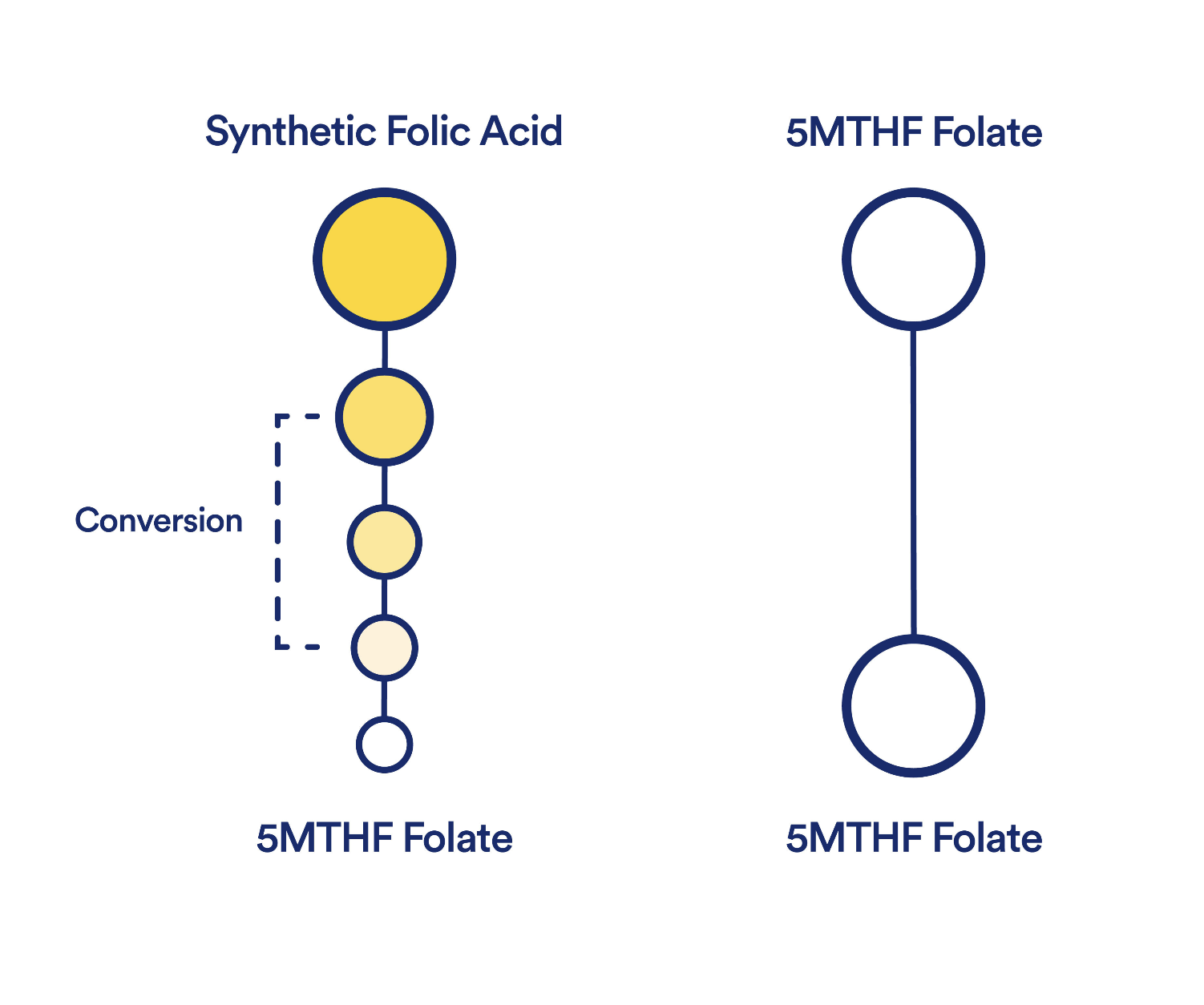Finding a Prenatal With Folate Not Folic Acid
Many prenatal multivitamins only use folic acid. In fact, all five best-selling prenatal multivitamins use the synthetic form of folate, folic acid. Which begs the question: if this genetic variation is prevalent, and the NIH suggests that 5-MTHF might be the more beneficial alternative for some, why stick with folic acid?†*
†Based on the top 5 US prenatal multivitamin brands by 2019 & trailing 12 month retail sales (through April '20)
There are a few reasons—namely, that folic acid has a long history of use from mandatory fortification of grains to use in supplements for many years. Folic acid has been known as a shelf-stable and more cost-effective version of folate. (It’s been so popular for so long, chances are you know the term “folic acid” more than “folate.”) Because of this use history and popularity as an ingredient, many pregnancy supplementation studies have relied on data from folic acid—which means that many companies developing prenatal multivitamins stick to the popular choice.
Folic Acid vs. Methylated Folate (5-MTHF) in Pregnancy
Folic acid and methylated folate as 5-MTHF are different forms of the same nutrient (folate) that both help support adequate folate levels, a key determinant in healthy neural tube development. The Food and Drug Administration (FDA) takes a position—with significant scientific agreement from qualified health experts—that maintaining adequate folate intake may reduce the risk of neural tube defects in pregnancy. As part of this, the FDA does not agree that folic acid is the only form of folate to help reduce the incidence of neural tube defects.(1)
The FDA further explains that “the diet/disease relationship is more accurately described as being related to all of the biologically active vitamin forms of folate rather than just to the synthetic form of the vitamin (i.e., folic acid).” We agree with the FDA's comments. Bottom line? The utility of increased folate intake in support of maintaining adequate folate levels is what is of importance, whether achieved through folic acid or folate.* (1)
Our Clinical-Backed Approach to Folate
In line with FDA, NIH, and other scientific research, our goal is simple: to support adequate folate intake, while being as inclusive as possible. In other words, we just didn’t think it made sense to develop a prenatal multivitamin that relied solely on a form of folate as folic acid, which up to one-third of women might not be able to use efficiently. Further to this, we wanted to avoid excess of unconverted folic acid given the trending research in this area.*
And we’re proud to share that we completed a clinical study that underlines our goal of supporting folate levels via 5-MTHF. Our university-led clinical study has been accepted for publication in the international peer-reviewed journal of Frontiers in Nutrition and showed that Essential for Women 18+, which uses the same form of folate as 5-MTHF and dosage (1000 mcg DFE) as Essential Prenatal, significantly increased folate levels in women of reproductive age.*











